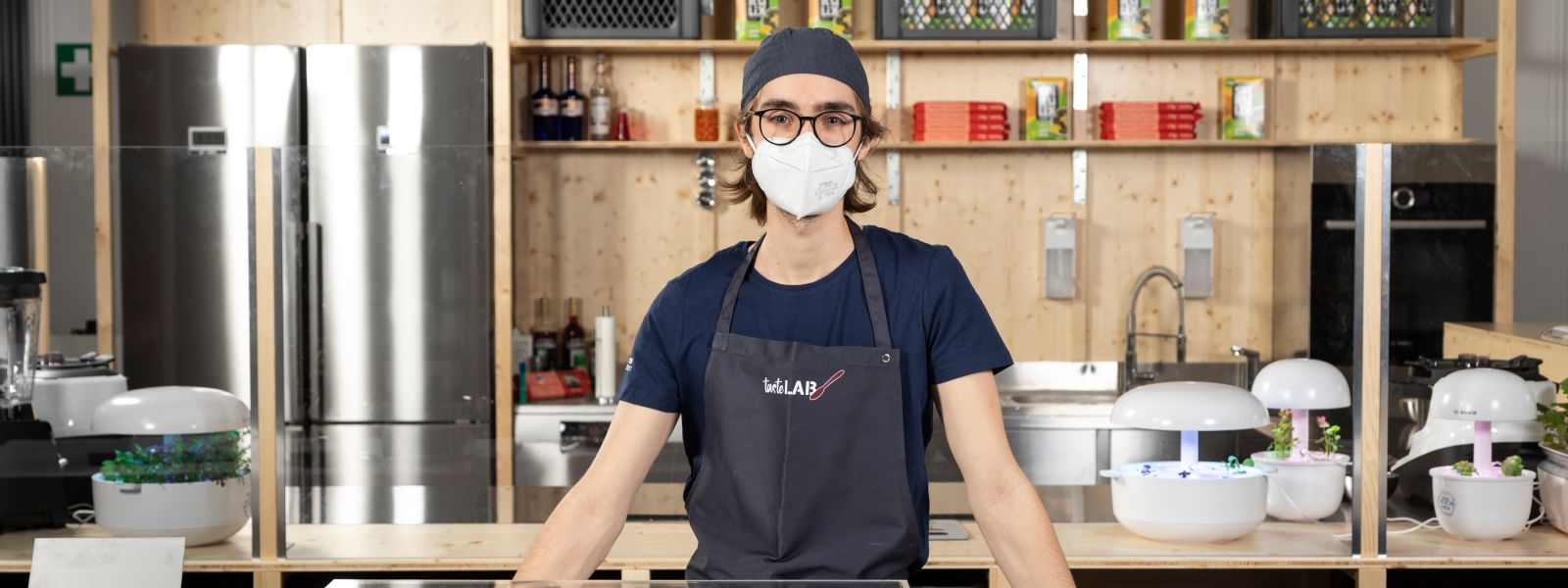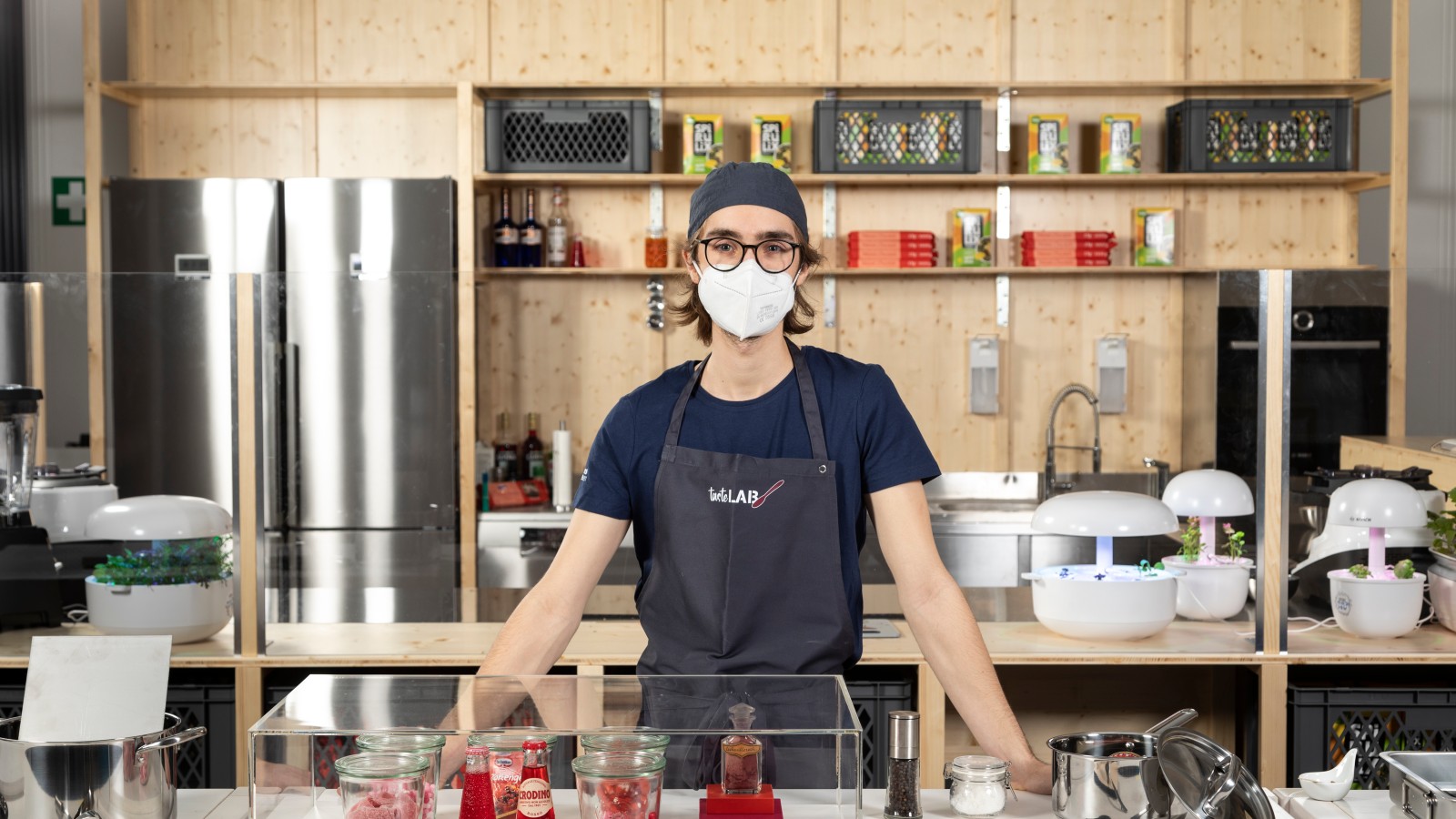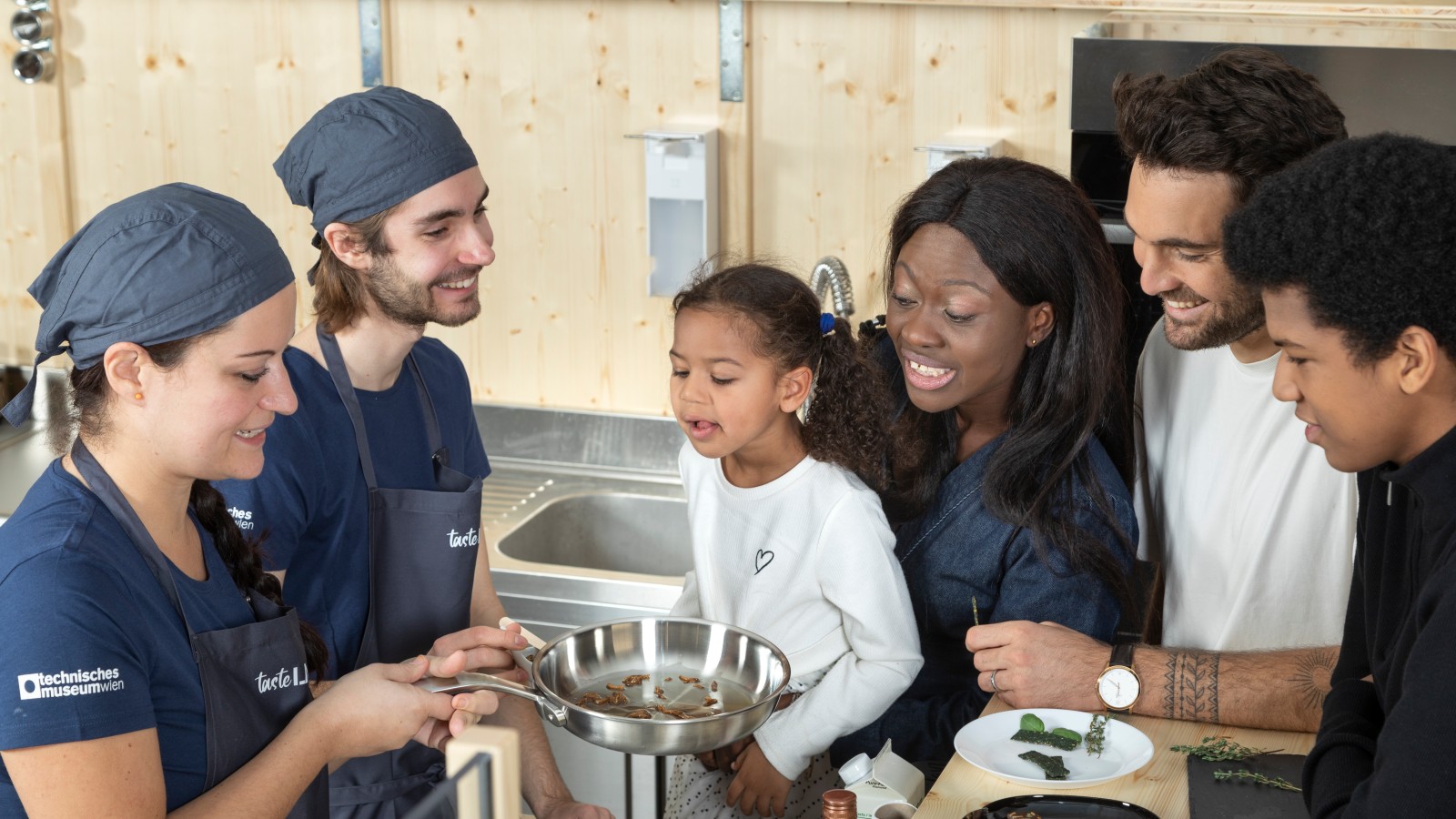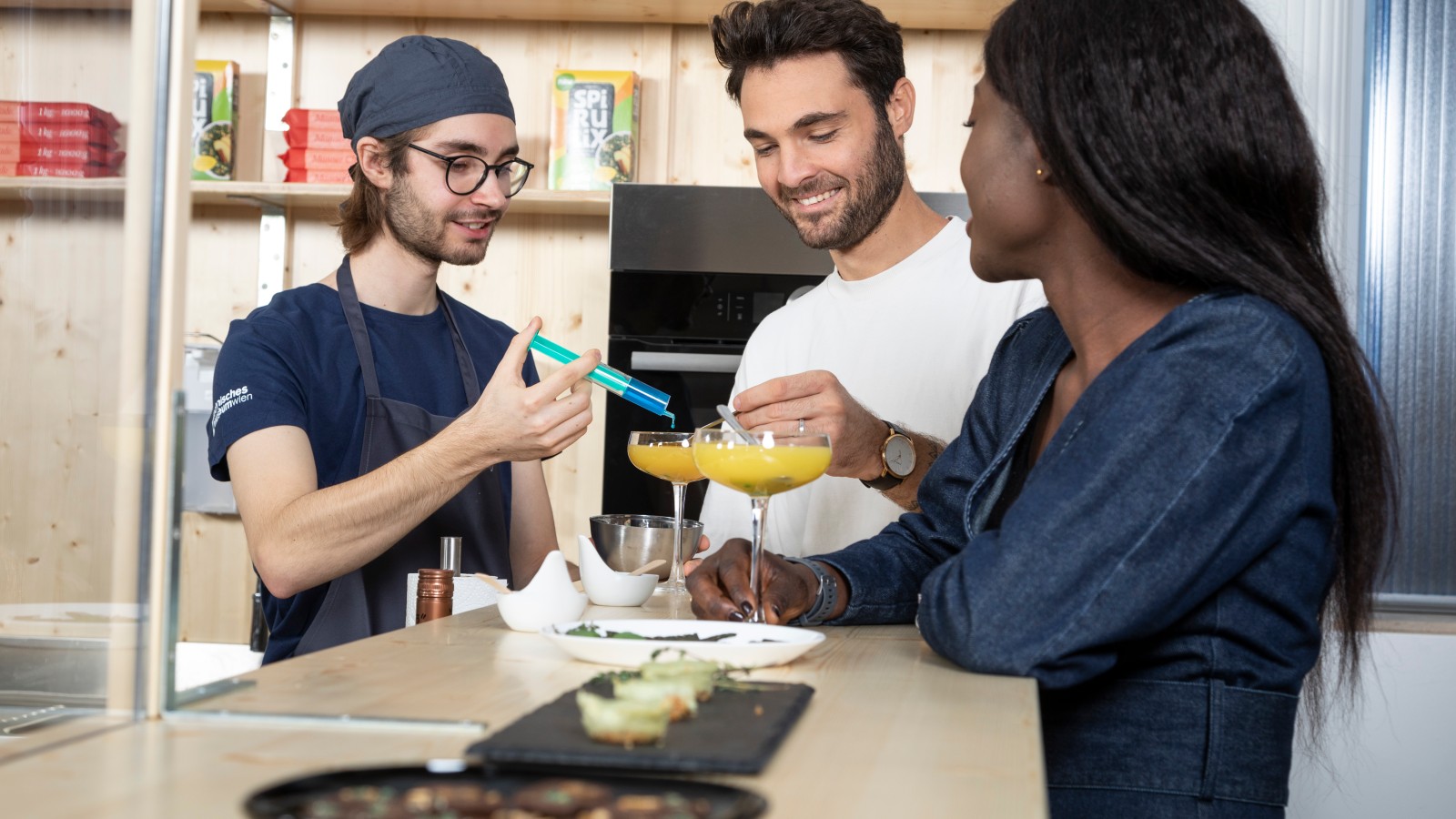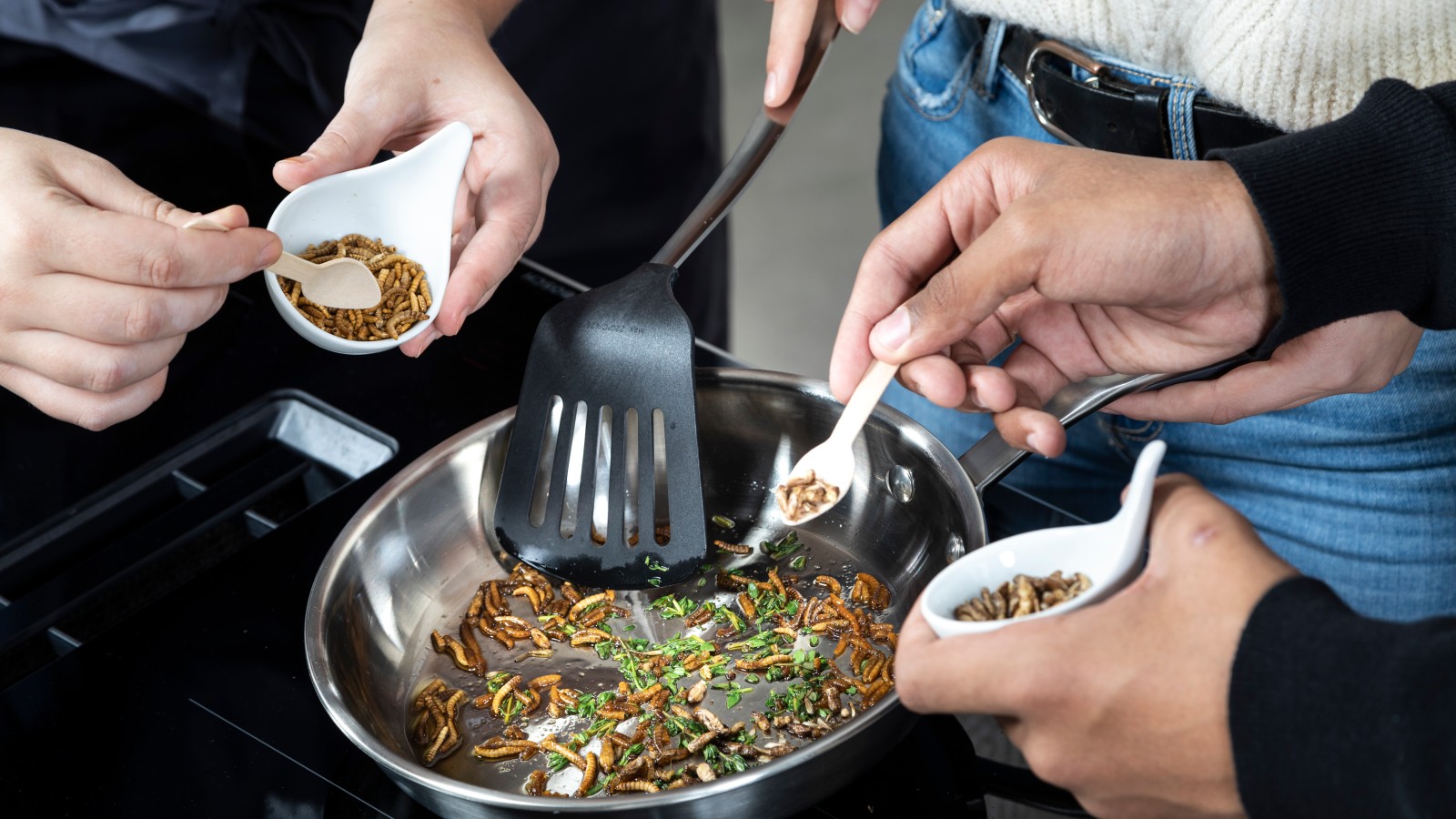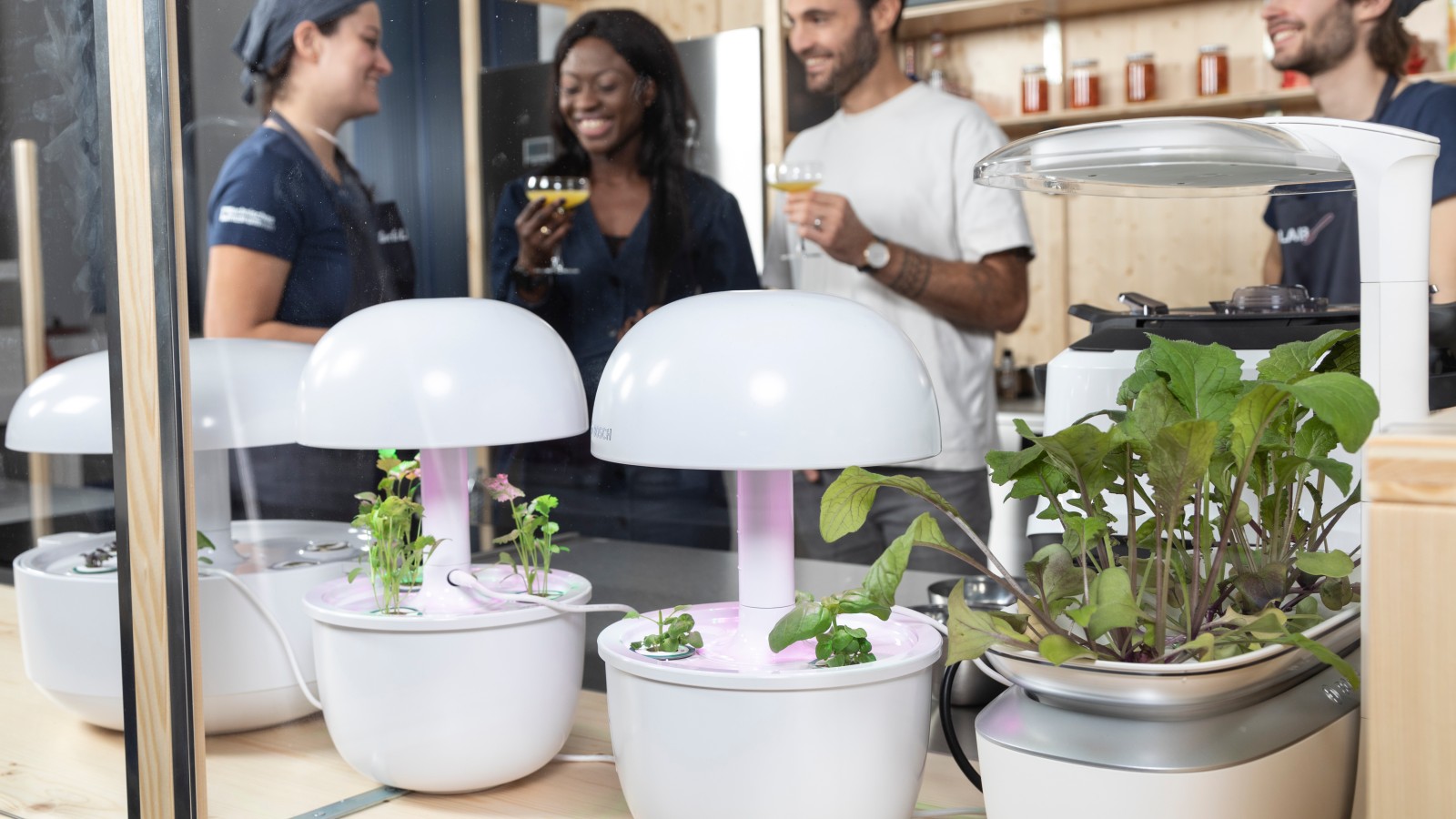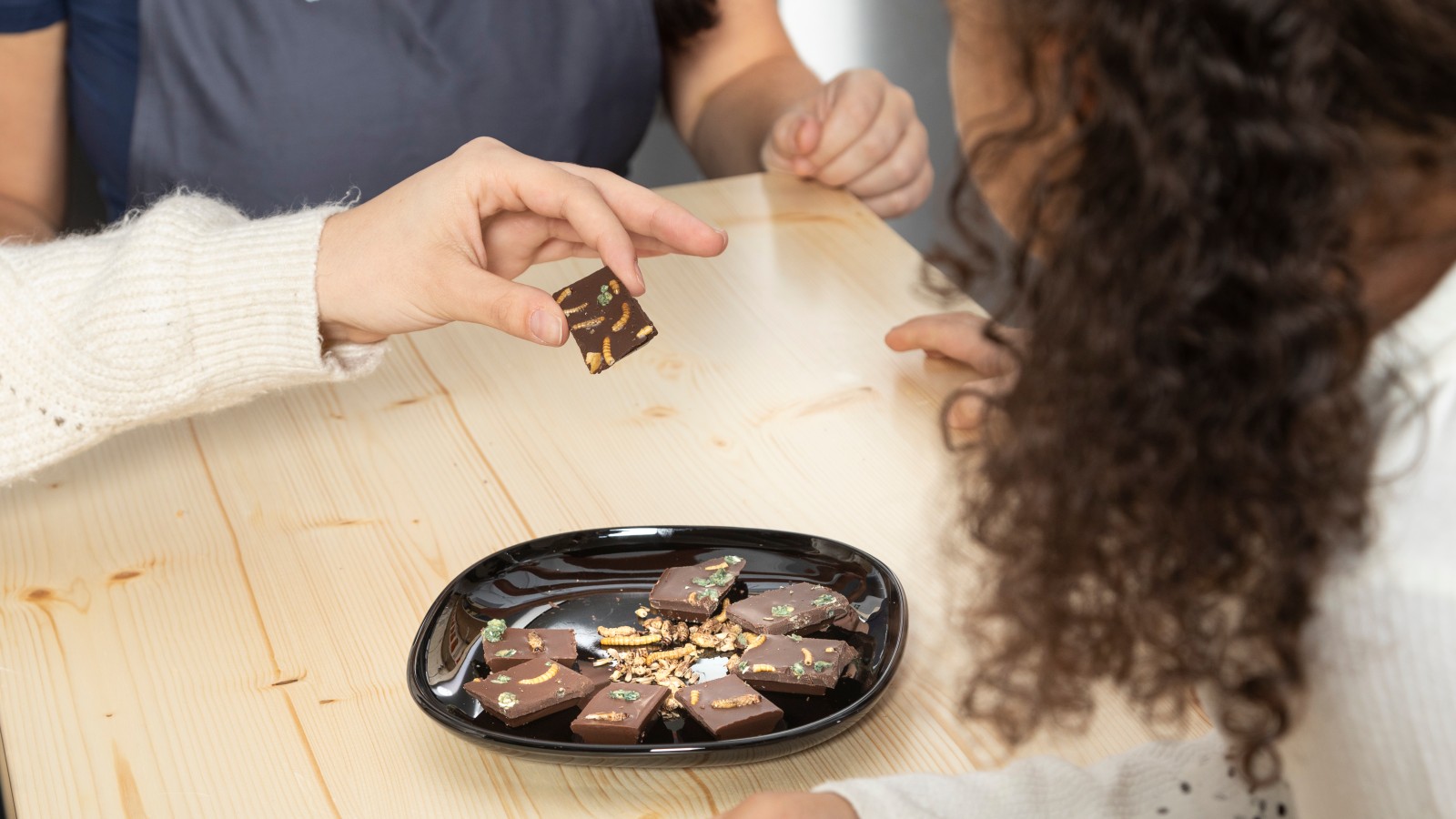The interactive educational area of FOODPRINTS invited visitors to approach the exhibition topics with your taste buds. Eating sustainable, eco-friendly and regional food, finding out more about the ingredients of processed food, using new cooking technologies and abandoning old habits for the sake of our environment and health – these are only a few wishes and requirements we face on a daily basis. But what does it mean for the taste of food? And how does it taste to ME?
In the tasteLAB’s continuously supervised demonstration kitchen, visitors were given culinary impressions and specific inspirations for a sustainable diet. Regional products, fancy cooking techniques such as 3D printing and highly unusual taste challenges like insects were examined in more detail and tasted in various parts of the programme. However, not only our food is worth taking a closer look, but also the faces behind the products get some time in the spotlight. As part of the regular series entitled Producers introduce themselves, regional producers visited the tasteLAB and talked about their work. Visitors could then verify the quality of the results on site.
Whether enjoying chocolate with your ears or tasting it with your nose, watching vegetables grow in the vertical farm or trying algae or insects for the first time: A visit to FOODPRINTS definitely expands your taste horizons.
Culinary accompanying programme
Dinner is served – cooking as a recipe against the climate crisis. The culinary accompanying programme of FOODPRINTS showed how delicious sustainability can taste.
Making lasting positive changes in our dietary habits does not necessarily involve sacrifices. Various workshop series, themed days and focus areas as part of the FOODPRINTS exhibition offered plenty of opportunities for cooking, dialogue and discovering something new.
Visiting the TMW
Here visitors could find out what’s in our food and what can be done with it. The seminar farmers explored questions related to nutrition and regionality as part of workshops in the tasteLAB while also providing interesting insights into the daily work routine on a farm, addressing topics such as “My food – my future” and “How does the grass get into the burger?”
As part of the series entitled Producers introduce themselves, food producers offered their sustainable, regional and innovative products.
Producers such as Spirulix or Zirp as well as partners of the Culinary Network explained their philosophy, also offering products and workshops.
In collaboration with Gourmet, a leading provider of mass catering services, the TMW offered a climate cooking workshop on several occasions. Gourmet Kids showed children and adults in a playful way how important a healthy diet consisting of seasonal and regional foods is for the climate and the environment.
As part of the series entitled Producers introduce themselves, food producers offered their sustainable, regional and innovative products.
Producers such as Spirulix or Zirp as well as partners of the Culinary Network explained their philosophy, also offering products and workshops.
In collaboration with Gourmet, a leading provider of mass catering services, the TMW offered a climate cooking workshop on several occasions. Gourmet Kids showed children and adults in a playful way how important a healthy diet consisting of seasonal and regional foods is for the climate and the environment.
Current Exhibitions
For everyone
